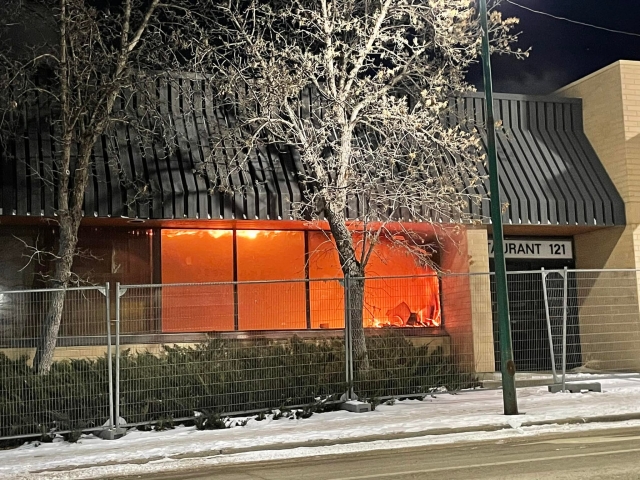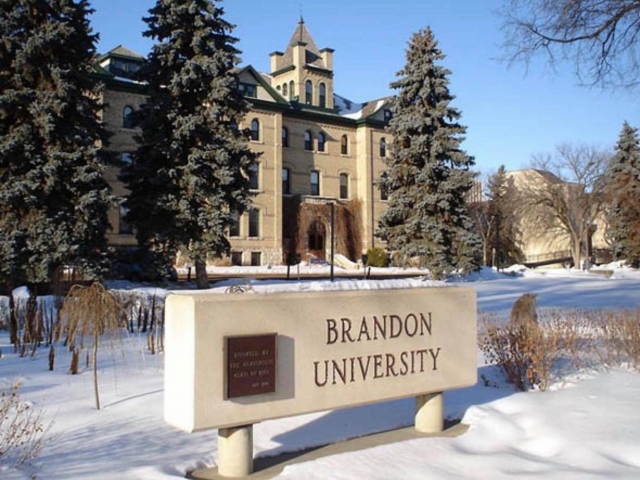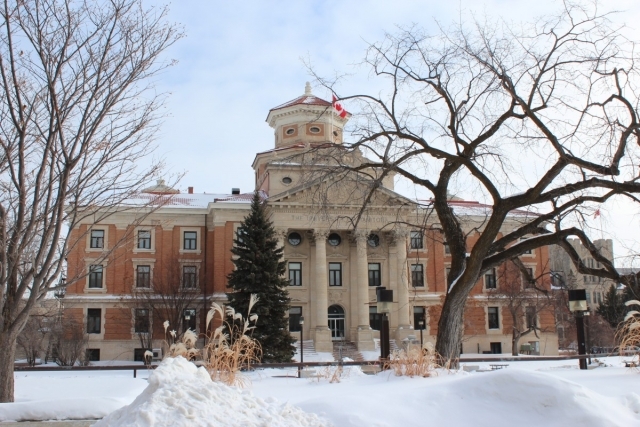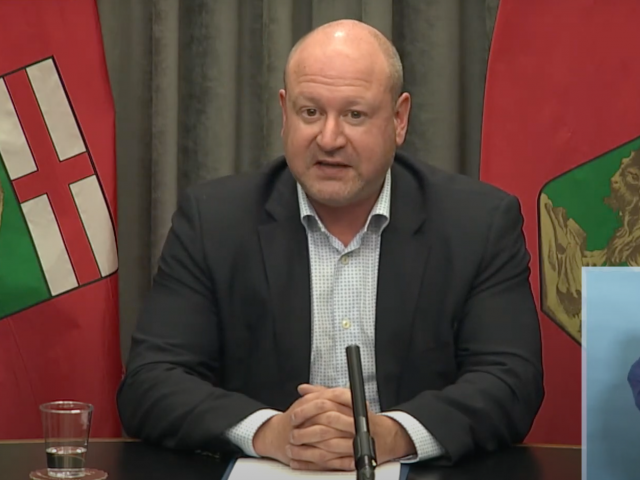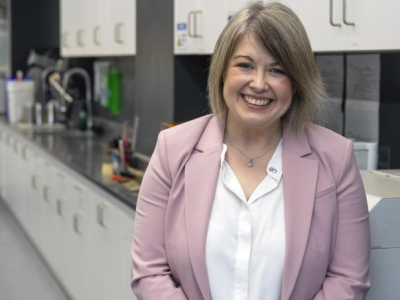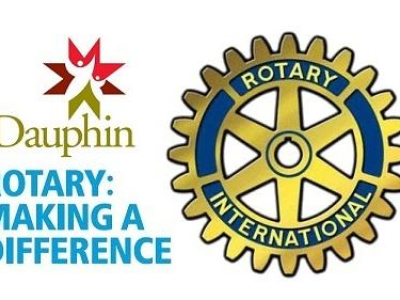 NewsNow
NewsNow
The Manitoba government announced provincial support for businesses this morning to deal with the effects of the new COVID-19 restrictions.
Jon Reyes, minister of economic development and jobs, made the announcement and said that the new program will offer up to 22 million dollars of direct financial relief for Manitoba businesses affected by the latest public health orders.
The Sector Support Program will offer grants of up to $12,000 to eligible businesses across the province.
The financial support through this program will be scaled by the size of the business and how many employees they have.
The breakdown of funds given out will be as follows:
- $3,000 if a business has 1-9 employees
- $6,000 if they have 10-19 employees
- $9,000 if they have 20-49 employees
- $12,000 if they have more than 50 employees
The funding will help assist businesses to deploy resources where needed the most and to sustain their businesses over the coming weeks.
More information including the full eligibility criteria and how to apply will be available on the Government of Manitoba’s Covid-19 Support for Business page in the coming days.
730 CKDM will have more info as it comes in.
- Details
- Contributed by Eric Fawx
Manitoba schools will be delaying their return to school after the winter break to January 10th from the 6th.
The delay is intended to allow health officials to assess the Omicron Situation, and get rapid tests out to more schools across the province.
Teachers will be returning to school on January 6th as planned to take part in professional learning and preparation.
Many child-care centers will be remaining open for kids under 12 to ensure families still have access to them.
- Details
- Contributed by Sam Brownell
Unvaccinated and Immunocompromised Manitobans that have mild to moderate COVID-19 symptoms could be offered a newly available treatment.
Dauphin Regional Health Center is one of three hospitals in the Prairie Mountain Health Region to offer this treatment. Brandon Regional Health Centre and Swan Valley Health Centre are also offering it.
It is called monoclonal antibody treatment and is a one-time intravenous treatment that will be offered by referral only and can be given to unvaccinated, partially vaccinated, and immunocompromised people who meet certain criteria.
The goal of the new treatment is to help prevent severe illness and hospitalization rates by promoting an initial immune response.
There are three groups of criteria that can make someone eligible for the treatment.
Group one:
- Unvaccinated or partially vaccinated, AND;
- Have no history of COVID-19 infection, AND;
- 40 years or older
Group two:
- Unvaccinated or partially vaccinated, AND;
- Have no history of COVID-19 infection, AND;
- 18-40 years old, AND;
- Conditions/risk factors such as diabetes, smoking, obesity, heart disease, kidney disease, lung disease, or cancer
Group three:
- 18 years or older (regardless of vaccination status or previous COVID-19 infection) AND;
- Immunocompromised
If you test positive for covid and match all the criteria in one of these groups, or want more information, you can find a referral form and more on Shared Healths website
- Details
- Contributed by Sam Brownell
A former Greyhound bus station caught fire last night in Brandon. The building was vacant and it is believed it was being used by people who were seeking shelter.
Investigators believe the fire could have been started by someone who was trying to stay warm.
- Details
- Contributed by Sam Brownell
Brandon University has asked their Senate to approve a delayed start to the Winter Term which was supposed to begin January 4, 2022. The University has also announced it will be moving to primarily remote learning until the end of January at the earliest.
If the delay is approved by the BU Senate, the school would still open as scheduled on January 4th, but classes would not start until the week after. The purpose of the delayed start is to help faculty make the shift to remote learning.
The BU Senate controls the academic calendar for the school and is expected to meet as soon as possible. Details will be shared with the BU community once the decision has been made.
Brandon University follows the University of Manitoba and the University of Winnipeg in their decisions to start the Winter Term remotely and reevaluate mid-January, once they have a better idea of the situation.
- Details
- Contributed by Sam Brownell
Manitoba Health officials say they will no longer be notifying close contacts of people who have tested positive for COVID-19. It will now be the responsibility of the person who tested positive to reach out to their close contacts.
Due to the expected increase in cases and contacts with the emergence of the Omicron variant, public health believes the numbers will surpass their resources.
They still plan on doing contact tracing in certain situations, such as outbreaks in schools and care homes, but the focus of resources will be shifted to the provinces vaccination campaign.
- Details
- Contributed by Sam Brownell
The University of Manitoba has announced that it will have remote classes to start the winter term according to University President and Vice-Chancellor Michael Benarroch. The U of M follows the University of Winnipeg who made their announcement to start the new term remotely last week.
Benarroch says they will reevaluate the situation as they approach their winter break at the end of February and then they will decide if they are going back to in-person classes or if they will continue remotely. Limited in-person activities will continue if it is absolutely necessary and there is no reasonable remote alternative.
More information will be given to students by their faculties, and staff will receive the info they need from their supervisors.
- Details
- Contributed by Sam Brownell
UPDATE: Brandon Regional Health Centre has been added to the list of hospitals postponing surgeries. All elective endoscopies at the BRHC will be postponed to allow staff to support the intensive care unit.
----------
The province has announced that starting today, it will be canceling more surgeries to make room for any emergency and cancer surgeries that could potentially come up in the next few weeks.
According to Shared Health, surgical capacity will not be reduced, but it will be prioritized for those who need emergency or urgent surgery.
Patients whose procedures are being affected by the change will either be told their surgeries have been postponed or the location of the surgery has changed.
- Details
- Contributed by Sam Brownell
Ottawa is responding to Manitoba's request for nurses as hospitals grapple with spiking COVID-19 cases.
Public Safety Minister Bill Blair says nurses from the Canadian Red Cross are being sent to Manitoba and will remain in the province until January 17th.
Blair's office says as many as eight emergency acute-care nurses will be deployed.
Red Cross officials say they're still trying to determine exactly where to send the additional help.
- Details
- Contributed by Eric Fawx
The Canadian Government announced that they're bringing back a requirement for everyone entering the country to have a pre-arrival negative molecular test result for COVID-19, even if travellers are returning after being away for less than 72 hours.
Canada is also removing their ban on all travellers who have recently passed through 10 African countries which the federal government introduced late last month in response to the emergence of the Omicron variant first identified in South Africa.
Canada's chief public health officer Doctor Theresa Tam says over the past seven days, Canada has seen an average of five-thousand new COVID-19 cases daily.
That's 45 percent higher than the previous seven-day period.
- Details
- Contributed by Eric Fawx
Manitoba's Chief Public Health Officer Dr. Brent Roussin and Health Minister Audrey Gordon have announced new restrictions that will come into effect Tuesday. The restrictions will be in place until at least January 11th.
The restrictions that start Tuesday are
-
Private gatherings will be household plus ten people if all above 12 are vaccinated
-
If even one person is unvaccinated then it's limited to household members plus 5 people.
-
Public indoor gatherings are to be at 25% or 25 people whichever is lower.
-
Outdoor gatherings are limited to 50 people.
-
Gyms, theaters, licensed venues, and museums are limited to 50% capacity
-
Restaurants, both licensed and unlicensed will have a max of ten people per table and everyone must remain seated.
-
Faith gatherings that require vaccination can have 50% capacity.
-
Faith gatherings that don't require vaccination are limited to 25% or 25 ppl whichever is lower.
-
No sports tournaments are allowed
-
Games and practices are allowed, spectator capacity is limited to 50%.
-
Large indoor events are limited to 50% capacity.
Settings that previously required people to show proof of vaccination will still have to do so.
- Details
- Contributed by Sam Brownell




